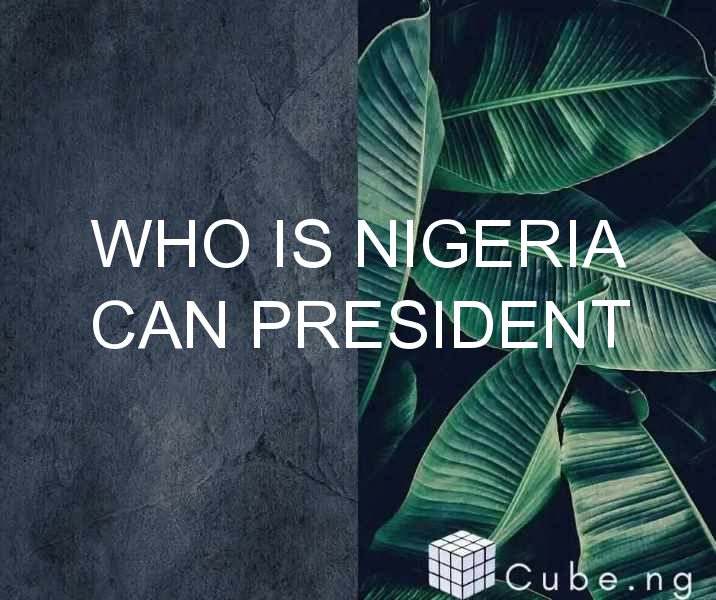Who is Nigeria's Can President?
Nigeria is a country in West Africa with a population of over 200 million people. The country has a federal presidential system of government, with the president being the head of the executive branch of government. The president is also the commander-in-chief of the armed forces and oversees the affairs of the country.
The president of Nigeria is elected into office through a general election that is held every four years. The election is conducted by the Independent National Electoral Commission (INEC), and the winner is expected to get at least 50% of the total votes cast, as well as a minimum of 25% of the votes in at least two-thirds of Nigeria's 36 states and the Federal Capital Territory.
Current President of Nigeria
The current president of Nigeria is Muhammadu Buhari. He was born on December 17, 1942, in Daura, Katsina State, in northern Nigeria. Buhari was a military officer who ruled Nigeria as a military dictator from 1983 to 1985.
Buhari retired from the military and became a politician, contesting for the presidency in 2003, 2007, and 2011, but he was unsuccessful in all his attempts. He finally won the presidential election in 2015 under the All Progressives Congress (APC) political party, defeating Goodluck Jonathan, the incumbent president.
Buhari was re-elected as president in 2019, beating Atiku Abubakar, the presidential candidate of the People's Democratic Party (PDP).
Powers and Responsibilities of the President
The president of Nigeria is the head of the executive branch of government and has several powers and responsibilities. Some of these include:
Commander-in-Chief of the Armed Forces
The president of Nigeria is the commander-in-chief of the armed forces, which means he has ultimate control over the military. He is responsible for protecting the country's territorial integrity and ensuring the safety of its citizens.
Executive Powers
The president has executive powers, which allow him to appoint and remove government officials, sign bills into law, and oversee the implementation of government policies and programs.
Foreign Relations
The president is also responsible for the country's foreign relations. He represents Nigeria at international meetings and conferences and can sign treaties and agreements on behalf of the country.
Budget and Finance
The president is involved in the preparation and presentation of the national budget. He is also responsible for ensuring that government funds are spent appropriately and that corruption is minimized.
National Security
The president is responsible for maintaining national security and protecting the country from internal and external threats. He works with the security agencies to ensure law and order are maintained and that the safety of citizens is guaranteed.
Qualifications to Become President in Nigeria
To be eligible to run for the presidency in Nigeria, a candidate must meet the following qualifications:
Citizenship
The candidate must be a citizen of Nigeria by birth.
Age
The candidate must be at least 35 years old.
Education
The candidate must have at least a school certificate or its equivalent.
Political Party
The candidate must be a member of a political party registered by INEC.
Nomination
The candidate must be nominated by his or her political party.
Conclusion
The president of Nigeria is the head of the executive branch of government and has several powers and responsibilities. The current president, Muhammadu Buhari, was elected in 2015 and is serving his second term in office.
To become president in Nigeria, a candidate must be a citizen of Nigeria by birth, at least 35 years old, have at least a school certificate or its equivalent, be a member of a political party registered by INEC, and be nominated by his or her political party.
The president plays a vital role in the governance of Nigeria, and it is important that the person holding the office is capable, competent, and able to lead the country effectively.




